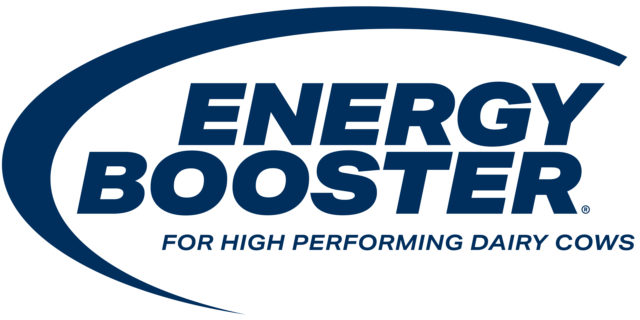Editor's note: CEO Corners are editors' compilations of business news from top publications, which they have tailored for the dairy industry. If you want to be a great leader on your dairy, the cover story from Harvard Business Review for May/June 2017 is a great place to start. The article, “What sets successful CEOs apart,” summarizes a research study that aimed to identify the common characteristics of great CEOs. More than 17,000 CEOs and their performance were reviewed. The research found great CEOs are decisive, engaged, adaptive and consistent.
You may not think of yourself as the CEO for your dairy because you don’t wear a tie or have a corner office, but you are the CEO for your dairy. Here’s how those four CEO traits identified by Harvard Business Review apply on your dairy:
First, be decisive
The article says great leaders “make decisions, earlier, faster and with greater conviction.” They don’t allow themselves to become bottlenecks, nor are they worried about making bad decisions. The authors say that great leaders see a decision gone bad as a chance to improve.
“Our analysis suggests that while every CEO makes mistakes, most of them are not lethal,” the authors write.
That’s probably the case on your dairy too. Is the choice to ship a low-producing cow to market this week or next something to get hung up on? That one decision isn’t likely lethal to your dairy. A suggestion for improving your decisiveness is to start asking the question “Is this decision, by itself, one that could be lethal to our dairy?” If yes, take some time with it. If no, then move quickly. Doing so will improve your leadership.
Second, be engaged
This means you can’t bring your cell phone to a staff meeting and check text messages. As important as those messages may be, you’re communicating that whatever is on your phone is more important than what’s being discussed. As a dairy owner, realize that you are communicating even when you don’t think you are. You must be present.
“Every comment and facial expression you make will be read and magnified 10 times by the organization,” one CEO quoted in the article says.
Dairy owners, my advice about how to avoid sending the wrong message: If you’ve had a bad day and putting on a good face will take too much energy, postpone. Politely excuse yourself, if you’re OK with decisions being made without you there, or reschedule. Being engaged takes a lot of energy. Make sure you have enough of it when interacting with your team. You’ll also need to prioritize what you choose to be engaged in on your dairy. Maybe not everything needs your engagement. Eliminate, automate and delegate what you can so that you can be present for only the most important tasks, as author Rory Vaden has made famous in his book Procrastinate on Purpose.
Third, adapt
The authors of the Harvard Business Review article say that adaptable CEOs spent “significantly more of their time – as much as 50 percent – thinking about the long term. … As a result, they sense change earlier and make strategic moves to take advantage of it.”
Being adaptive is probably the hardest of the four characteristics for dairy owners to achieve. There’s so much to get done on a dairy each day that it leaves little time for thinking about the big picture. We’ve written about this conundrum before. My suggestion for how to become more adaptable on your farm is to increase the time you spend on big-picture thinking by 50 percent. If you spend 10 minutes per day thinking about that right now, find a way to increase it to 15 minutes per day. That extra 50 percent will make you even more adaptable to change.
Finally, be consistent
The authors’ research found great leaders follow through on their commitments, have a “cadence of meetings” and monitor team performance unceasingly. For dairy owners, this means you must follow your own dairy’s standard operating procedures just like any other employee. If you say you’ll get something fixed, put a deadline on it and do it by then. If payday is the 15th, reliably pay your employees on time. Reliability will build your leadership capital.
Here’s some other things great dairy CEOs do.
President Trump floating trial balloons
News outlets this last week reported two business items that could have an impact on dairy owners. The first item was a Trump proposal to pull out of NAFTA. The Wall Street Journal reported the president “was prepared to end [the] pact, but relented after calls from trade partners.” The same story acknowledged that renegotiation rather than termination of the continental trade deal is more likely. Any changes to NAFTA will most certainly affect dairy trade, as Mexico and Canada are the top two individual countries purchasing dairy products from the U.S.
Secondly, President Donald Trump has floated ideas about how he would reform the country’s tax code. His ideas include eliminating estate taxes, deductions for state and local taxes already paid and deductions for nearly everything but mortgage interest and charitable contributions, according to the Wall Street Journal.
Too few details about Trump’s plan have been released for accountants to definitively say whether his ideas would be a net positive or negative for dairy owners. Kurtis Groff, an accountant with Simon Lever who has dairy farm clients in Pennsylvania, replied to my request for comment with this:
“We are concerned with President Trump’s plan to eliminate certain business deductions. The president’s plan isn’t clear which deductions will be eliminated, but we have concern over the loss of interest expense deductions, as well as the domestic production activities deduction. While tax rates are proposed to drop, the elimination of certain key deductions could cause an increase in net taxes owed. As with any proposal, our position is to wait and see what is actually enacted into law. We have not had sweeping tax reform since 1986. The likelihood of Congress passing anything by July or even the end of the year is improbable.” ![]()

-
Walt Cooley
- Editor-in-chief
- Progressive Dairyman
- Email Walt Cooley






